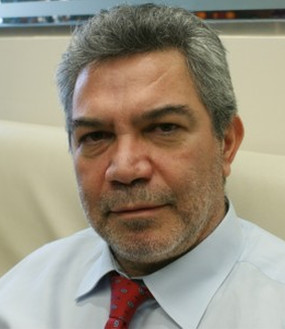
Gavriil Sotiris
Special Surgeon, Obesity, Oncology, Digestive System
I was born in Polichnitos of Lesvos, at a time when the island was neglected and the living conditions of the people were particularly difficult. I remember, however, that back then hardly anyone was obese, since it was almost obligatory to be engaged in agricultural activities on a daily basis and for hours on end. How could I ever imagine that several years later, obesity would be a disease of frightening proportions!
I finished Primary and Junior high school in Polichnitos, whereas I completed my secondary education at the Model Senior High School of Patras. I went on to theMedicalSchoolof theUniversityofPatrasand during my last years there I devoted my studies to surgery, and in particular to the newly emerged surgery for obesity. I completed my training in General surgery in two hospitals, Evangelismos and Agia Olga. It was then that laparoscopic surgery started to become the dominant technique, bringing with it a new approach to dealing with surgical diseases. Contrary to the traditional open surgery, laparoscopic surgery shortened the length of hospital stay, accelerated patients’ recovery and minimized postoperative pain. I specialized in laparoscopic surgery for all biliary diseases, for the diseases of the large intestine, appendicitis, hernias and surgical oncology, and was further trained on the particular field at Bordeaux, France.
Later, in my private practice I worked on the surgery for obesity, which, at the time was managed through open surgery, e.g. with vertical banded gastroplasty (VGB). My experience in laparoscopic surgery helped me gradually introduce a new concept in bariatric surgery, initially with the gastric bypass, and subsequently with the gastric band.
… to today
For 13 years now I have been exclusively engaged in the field of morbid obesity, starting with the method of gastric bypass, which I applied to more than five hundred patients. It is a very difficult but also radical and effective technique, which was often accompanied by problems. It was while dealing with these problems that I started cultivating the idea that there was no reason for that particular method to be used on every single case of morbid obesity; I thought that it would be equally effective to manage the disease with the –then– emerging method of gastric band, which has a lower morbidity rate than the gastric bypass.
In fact I often think that if the band had existed when my father, who suffered from obesity that lead to coronary artery inflammation and to sleep apnea, was still alive, it would have saved him. I was amply trained inFranceon gastric banding, and when I returned toGreeceI worked exclusively on the particular technique.
Despite the problems of the first period, the outcome was satisfying, as overweight people started to learn that there was a new ideal method that would solve their problem, one that didn’t involve unorthodox weight loss methods, such as “magic pills”. I set about informing the public on gastric banding any way I could, through the press and awareness-raising events.
My efforts bore fruit since those who suffered from obesity moved away from slimming institutes and turned to bariatric surgeons to get information on the technique, and to dietitians -who up to that moment had been applying their knowledge at beauty salons – to follow a proper diet, before and after surgery.
Subsequently, the scientific community started applying the gastric bypass method with less morbidity and better results. The particular technique originally involved 2 phases; the first being the removal of the fundus and the second the biliopancreatic diversion. Later we saw that many patients did not need a biliopancreatic bypass, because they had excellent results with the stomach surgery alone. For that reason the particular technique was separated from the gastric bypass and was named sleeve gastrectomy or gastric sleeve.
So, I continued my training on that technique also, with which I was already familiar due to the gastric bypass. I believe it has a lot to offer to patients who either have undergone an unsuccessful gastric banding or who are sugar-dependent, therefore unsuitable for gastric band. Overall, I have performed more than 15,000 bariatric surgeries (gastric balloon, gastric band, sleeve gastrectomy, vertical banded gastroplasty, and biliopancreatic by-pass).
It is a fact that in the beginning I was intensely criticized for the weight I attributed to the subject of bariatric surgery, and my actions were deemed exaggerated at the time. It was however proved that they put the matter of obesity on the right basis. Today, people know that weight control is a medical matter and rarely resort to charlatanry and to unorthodox weight loss methods (pills, creams etc.), and all general practitioners refer obese persons to bariatric surgeons. The scientific world acknowledges my contribution to this.
Along the way, with the desire to pass my knowledge and experience to colleagues who were interested in taking up bariatric surgery inGreeceand abroad, I trained a number of surgeons, who are today very successful in the field.
At the same time, in the last years I had the leading role in establishing organized centers for the treatment of obesity as a disease, such as the Doctors’ Hospital in Athens and Medline at Bulgaria.
Languages: Greek, English
E info@sgavriil.gr | www.sgavriil.gr
Medical Services
- Obesity Surgery
- Surgical Oncology & Gastrointestinal surgery
- Hernia surgery
- Laser surgery

